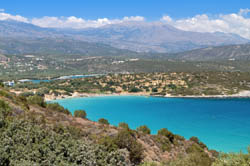Island sustainability reaches new levels
Renewable energy is key to sustainability, particularly on remote islands that cannot tap into large-scale energy infrastructures. The EU-funded project INRES brought three island regions together to promote innovation in this area. The partnership comprised the island of Crete in Greece, Samso in Denmark and the Canary Islands in Spain. Each island set up a three-partner research cluster that comprised a public authority, a development-related partner and an industrial actor, with particular focus on small and medium-sized enterprises (SMEs). The project was managed by a consulting company in Italy specialising in technology transfer and improved networking. The first part of the project involved analysing core competencies, regional research agendas, economic impact of renewable energy polices and technology transfer dynamics. The team also investigated carbon dioxide (CO2) emissions and studied industry-related policies for CO2 reduction, in addition to identifying European RES policies. Once this was completed, INRES outlined a long-term business plan and action plan with policies and research strategies for the RES sector, developing a common agenda for sustainable energy development. As a result, each island region created a regional research-driven cluster and implemented some form of renewable energy. The Canary Islands developed environmental products and services related to water, energy, waste treatment, environmental quality systems, contamination management and sustainable development, focusing on related electromechanical equipment. Crete developed renewable energy polices and studied their impact on SMEs, specialising in photovoltaic (PV) panels and thermal control systems in the hospitality industry. At the same time, Samso helped local companies integrate RES related to wind turbines and district heating plants, involving on solar panels, underground heating and novel home-based systems in particular. Based on these three clusters, the project furthered knowledge transfer among the participating regions through staff exchanges and workshops. Overall, the project's research initiatives led to numerous publications that could potentially help isolated communities develop viable sustainable energy systems. It demonstrated the power of partnerships among regions and set the stage for similar initiatives in the future. Such interconnected thinking from different cultural contexts is expected to achieve impressive synergistic results in the field of sustainability.







